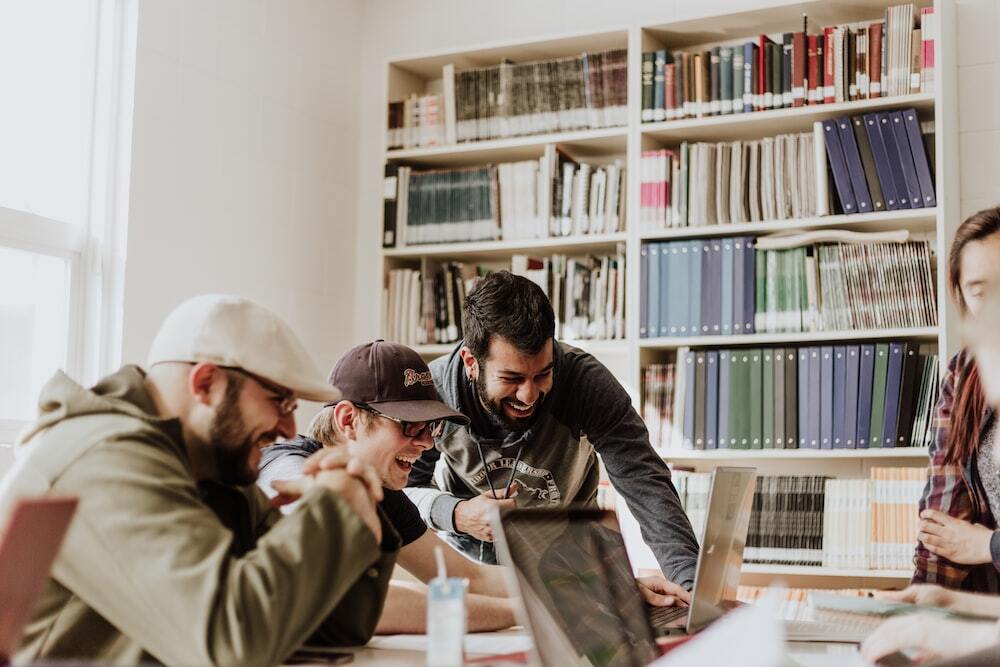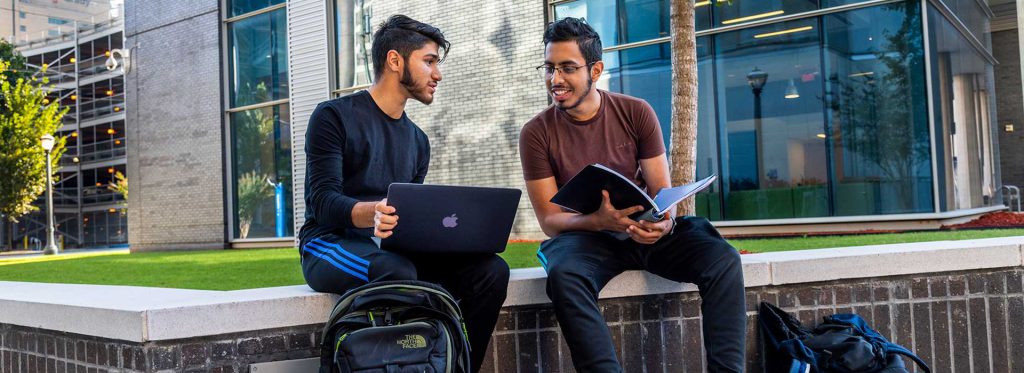- Bangalore-560056
- helpdesk@dishankeducation.com
- 24/7 Support 8971649549
Why Study in USA

The United States of America has long been a popular destination for international students seeking high-quality education and diverse cultural experiences. Here are some reasons why studying in the USA can be a life-changing experience:
Top-ranked universities: The USA is home to some of the best universities in the world, such as Harvard, Stanford, and MIT. These universities are renowned for their academic rigor, cutting-edge research, and world-class faculty.
Wide range of programs: The USA offers a vast range of academic programs, from undergraduate degrees to doctoral programs, across a broad spectrum of fields, including engineering, business, humanities, and the arts.
Flexible education system: The American education system is known for its flexibility and emphasis on interdisciplinary learning. Students are encouraged to explore different fields of study and design their own academic programs to suit their interests and goals.
Research opportunities: The USA is a global leader in scientific and technological research, and many universities offer research opportunities to students. This provides hands-on experience and the chance to work alongside leading experts in various fields.
Cultural diversity: Studying in the USA offers a unique opportunity to experience American culture and interact with people from all over the world. International students can broaden their perspectives, learn about different cultures, and make lifelong friendships.
Career opportunities: The USA has a robust job market and offers ample career opportunities for graduates. Many employers value a degree from an American university, and international students can gain valuable work experience through internships and part-time jobs.
English language proficiency: Studying in the USA can improve students’ English language skills, which can be a valuable asset in the global job market.
In summary, studying in the USA offers many benefits, including access to top-ranked universities, a flexible education system, research opportunities, cultural diversity, and career opportunities. It’s no wonder that the USA is one of the most popular destinations for international students.

Documents required to Study in USA
When you plan to study in the USA, there are several documents you need to prepare for your admission and student visa application. Here is a detailed list of the documents required to study in the USA:
Passport – A valid passport is the primary document you need to enter the United States. Ensure that your passport is up-to-date and will not expire during your stay in the US.
Admission Letter – An admission letter from the university or college you are attending is mandatory for your student visa application. This letter confirms that you have been accepted into an academic program and includes information about your program’s start date and duration.
Form I-20 – Your university or college will provide you with Form I-20. It is a crucial document that you need to submit to the US embassy or consulate to apply for your student visa. The form includes essential details about your academic program, tuition fees, and living expenses.
Financial Documents – You need to demonstrate that you have sufficient financial resources to support yourself during your studies in the US. This could be in the form of bank statements, scholarship letters, or sponsor letters.
English Language Proficiency Test Results – Many universities and colleges require international students to demonstrate their proficiency in the English language. You may need to provide test results from English language proficiency tests such as TOEFL or IELTS.
Student Visa Application Form – You need to fill out the student visa application form (DS-160) online and submit it to the US embassy or consulate in your home country. You must pay the application fee, which varies depending on your home country.
Visa Interview Appointment Letter – Once you have submitted your student visa application, you need to schedule an interview appointment at the US embassy or consulate in your home country. You will need to bring all the necessary documents, including your passport, admission letter, Form I-20, financial documents, English language proficiency test results, and visa application fee receipt, to your visa interview.

USA Student visa
If you are planning to study in the USA, you will need to obtain a student visa. The process for obtaining a student visa can be complex, but it is important to follow the steps carefully to ensure a successful outcome. Here are the general steps for obtaining a student visa:
Apply to a SEVP-approved school in the USA: The first step in obtaining a student visa is to apply to a Student and Exchange Visitor Program (SEVP)-approved school in the USA. You will need to provide proof of acceptance into the school, such as an acceptance letter or I-20 form.
Pay the SEVIS fee: Once you have been accepted into a SEVP-approved school, you will need to pay the SEVIS fee. This fee covers the cost of the Student and Exchange Visitor Information System (SEVIS), which is used to track international students. You can pay the fee online or by mail.
Complete the DS-160 form: The next step is to complete the DS-160 form, which is the online application for a nonimmigrant visa. You will need to provide personal information, details about your intended course of study, and information about your finances.
Schedule an interview: After you have completed the DS-160 form, you will need to schedule an appointment for a visa interview at the U.S. embassy or consulate in your home country. You can schedule the appointment online or by phone. You should schedule the appointment as early as possible, as wait times can be lengthy.
Attend the interview: On the day of your interview, you will need to bring all required documents, including your passport, visa application fee receipt, SEVIS fee receipt, acceptance letter from the SEVP-approved school, and any other supporting documents. During the interview, a consular officer will ask you questions about your intended course of study and your ties to your home country.
Wait for visa approval: After the interview, you will need to wait for your visa to be approved. If your visa is approved, the embassy or consulate will affix a visa to your passport, which will allow you to travel to the USA as a student. If your visa is denied, you will receive a letter explaining the reasons for the denial.
